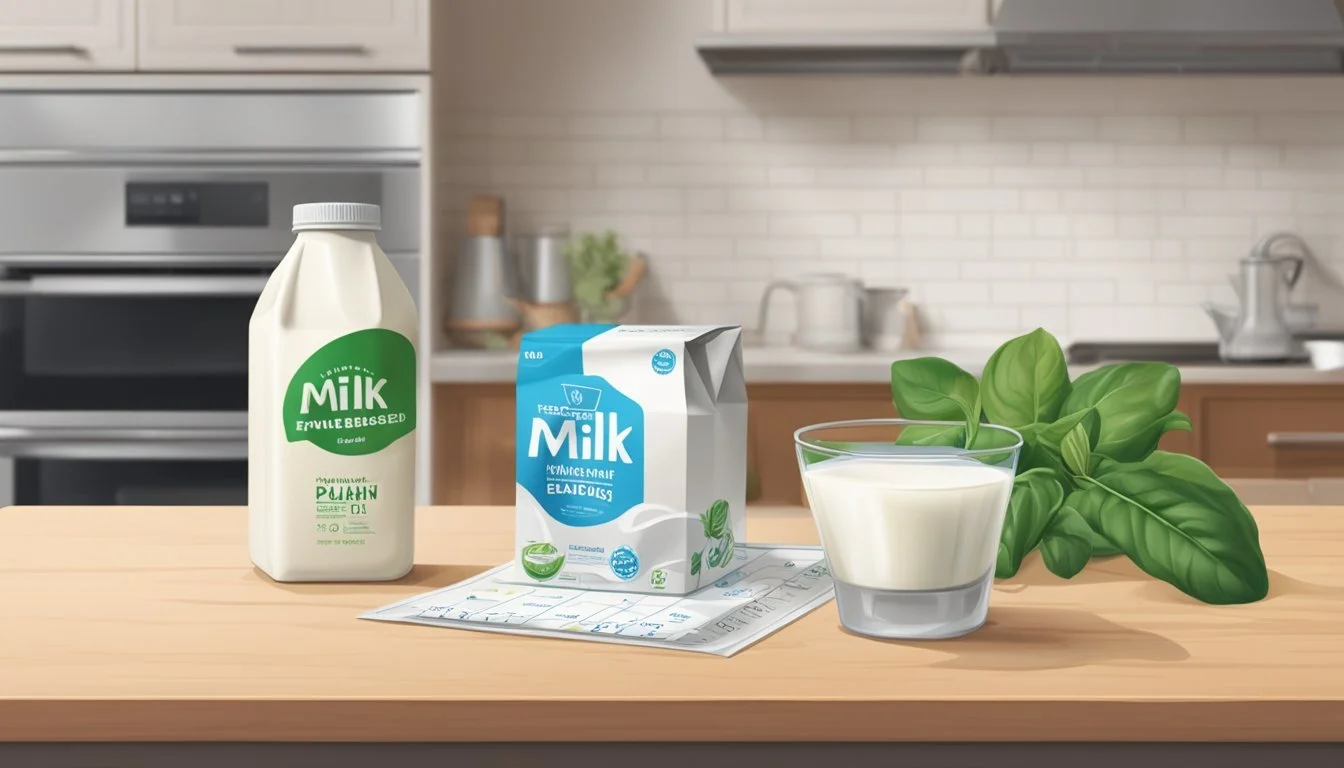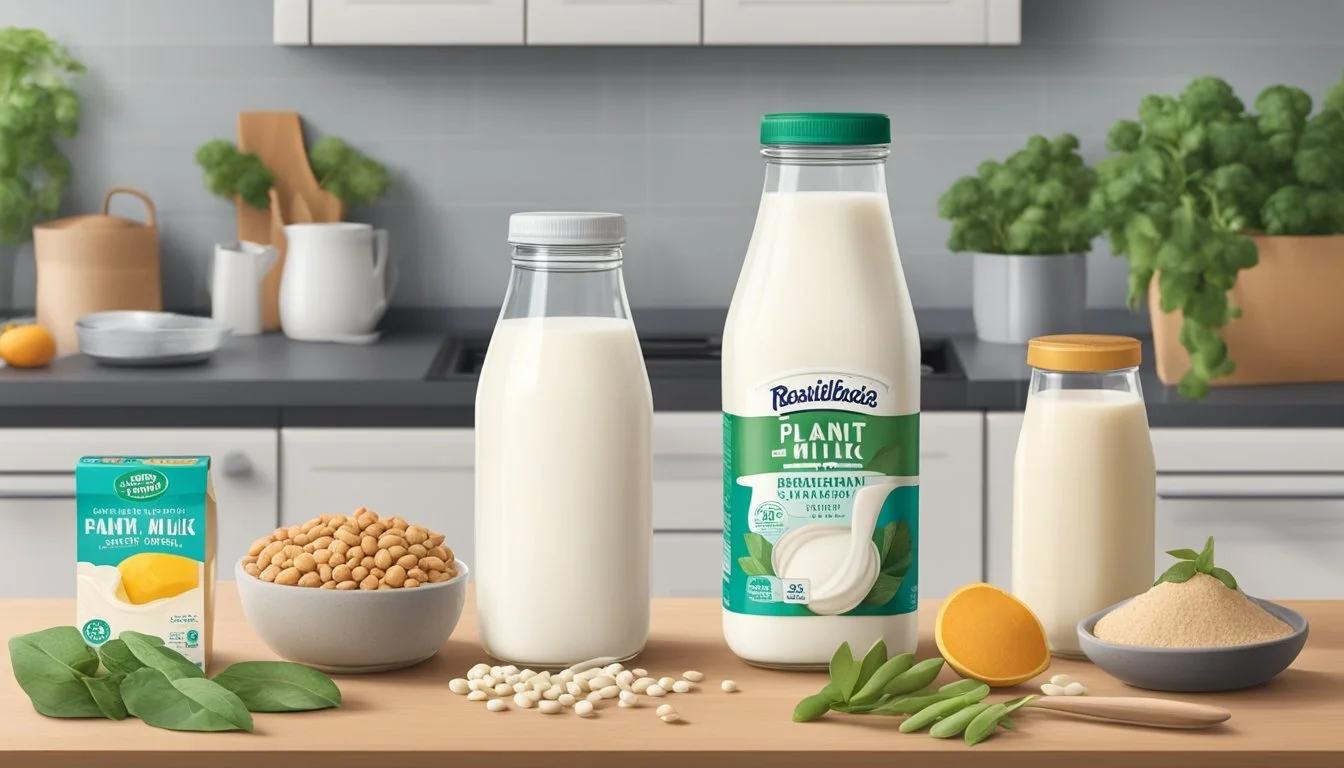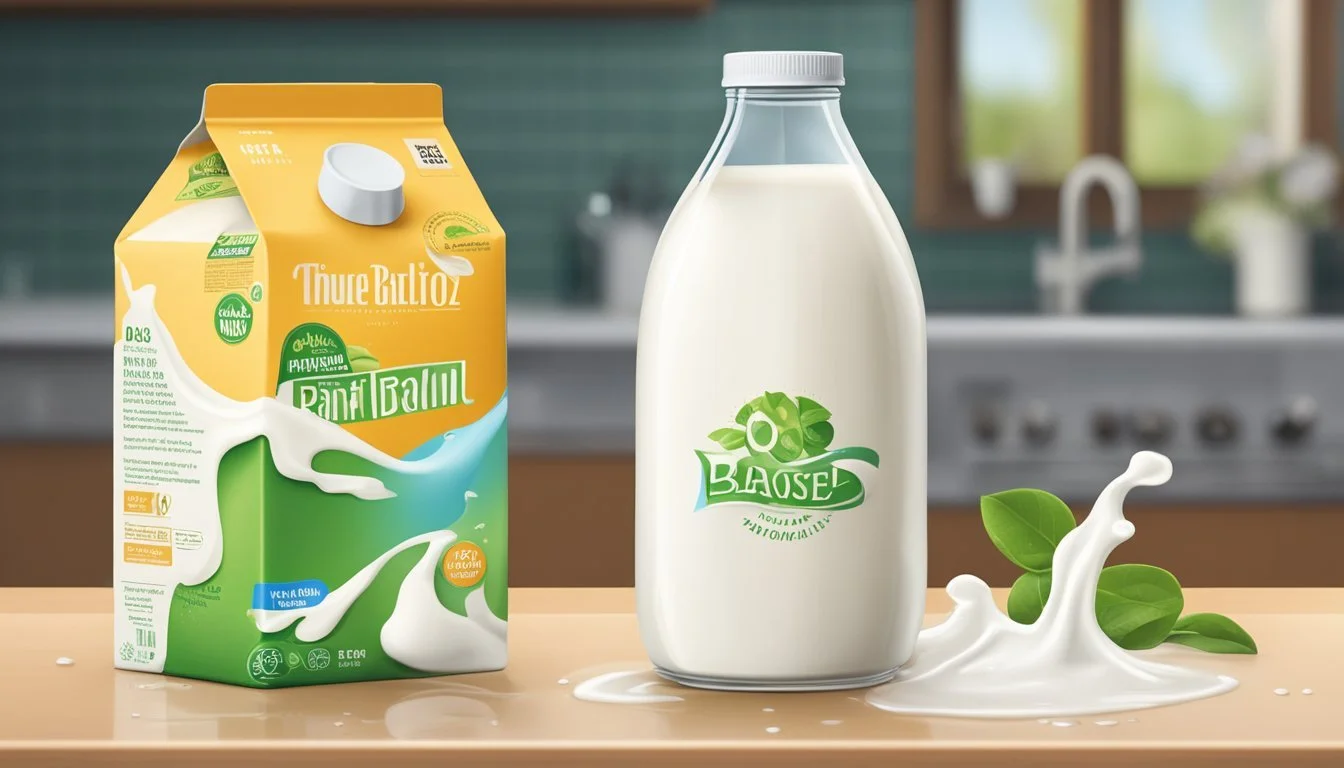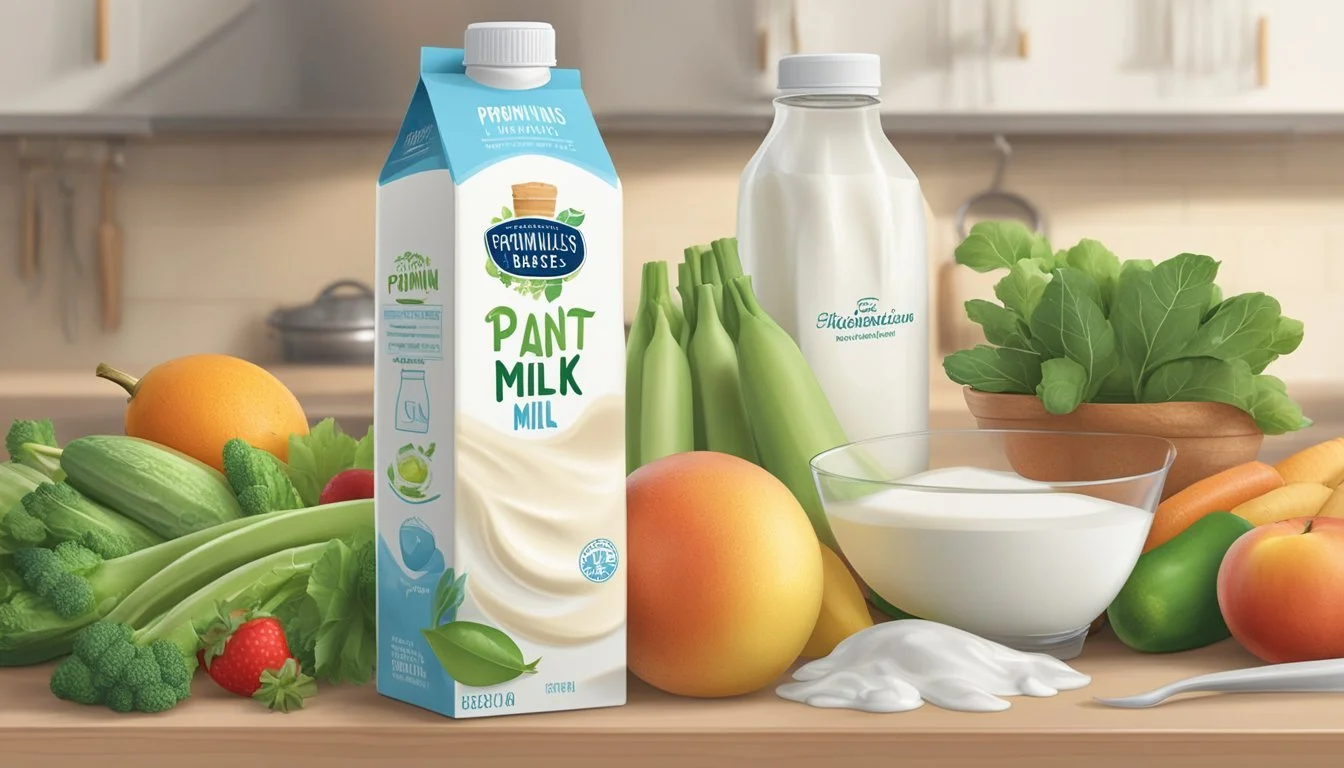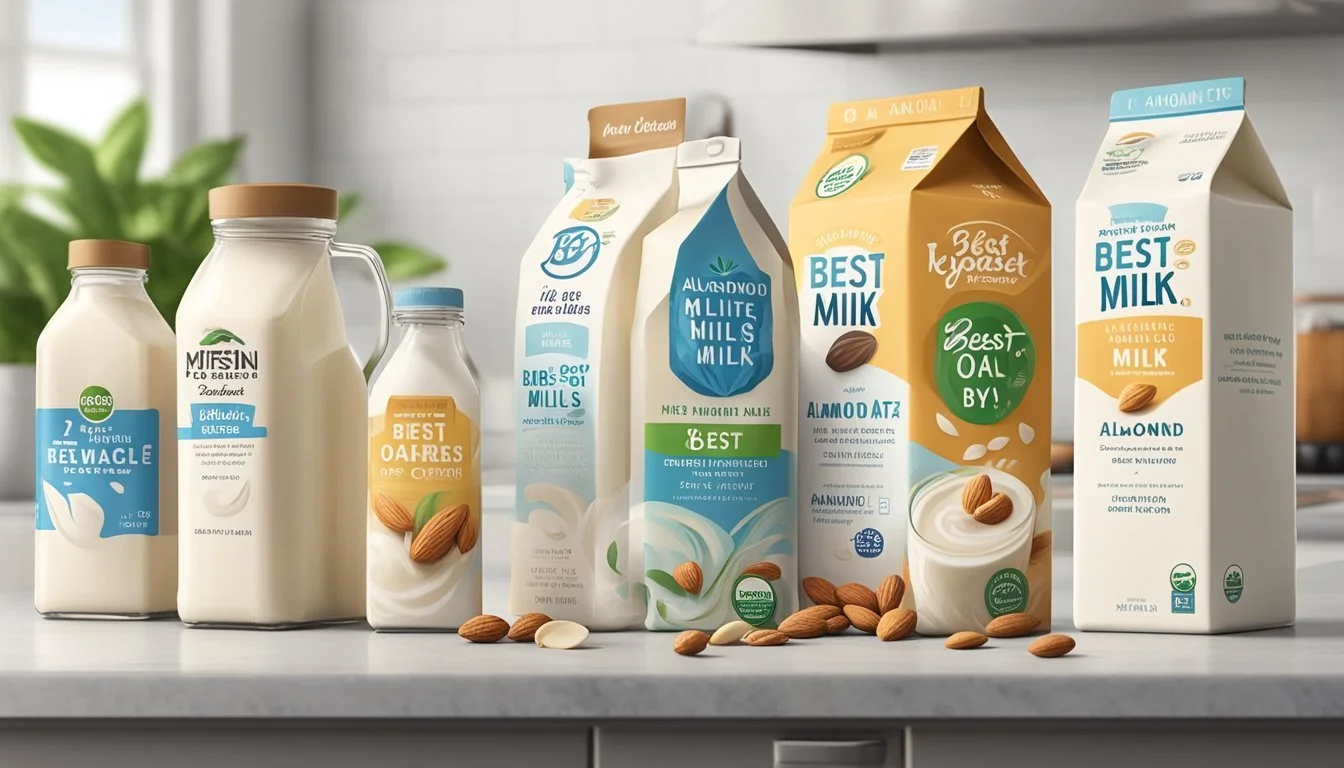Does Plant-Based Milk Go Bad?
Shelf Life and Storage Tips
Plant-based milk has gained popularity as a nutritious alternative to traditional dairy. As more people turn to options like almond, soy, and oat milk, a common question arises: does plant-based milk go bad? Yes, plant-based milk can spoil, and it usually does so within a week to ten days after opening, depending on the type and storage conditions.
Each type of plant-based milk has its shelf life and signs of spoilage to watch for. Unopened plant-based milk typically stays fresh for several months when stored correctly. However, once opened, it must be refrigerated and consumed within the recommended timeframe. The spoilage signs include changes in smell, texture, and taste.
Being mindful of expiration dates and proper storage is crucial for ensuring the quality and safety of plant-based milk. Knowing how to identify spoilage can save you from consuming a product that's past its prime, ensuring you enjoy the full benefits of your plant-based beverages.
Understanding Plant-Based Milks
Plant-based milks have become a popular alternative to dairy milk, offering a range of benefits such as reduced inflammation and lower calorie counts. Below, we explore the varieties, nutritional comparison to dairy milk, and health benefits of these plant-based alternatives.
Varieties of Plant-Based Milks
There are several types of plant-based milks available, each with unique characteristics and nutritional profiles:
Soy Milk: Made from soybeans, it has a creamy texture and is rich in protein.
Almond Milk: Derived from almonds, it's low in calories and contains healthy fats.
Coconut Milk: Produced from coconut flesh, it has a rich, sweet flavor and high fat content.
Oat Milk: Made from oats, it has a creamy consistency and is high in fiber.
Rice Milk: Created from milled rice, it is naturally sweet but lower in protein.
Hemp Milk: Made from hemp seeds, it offers omega-3 fatty acids and proteins.
Cashew Milk: Produced from cashews, it is creamy and slightly nutty in flavor.
Flaxseed Milk: Made from flaxseeds, it offers omega-3 fatty acids.
Macadamia Nut Milk: Derived from macadamia nuts, it's creamy with a slightly buttery taste.
Nutritional Comparison to Dairy Milk
When comparing plant-based milks to dairy milk, there are several nutritional differences:
Milk Type Protein (g per cup) Calcium (mg per cup) Calories (per cup) Dairy Milk 8 300 149 Soy Milk 7 300+ (fortified) 80-110 Almond Milk 1 450 (fortified) 30-50 Coconut Milk 0.5 100 (fortified) 45-75 Oat Milk 2-4 350 (fortified) 120-150 Rice Milk 1 300 (fortified) 120 Hemp Milk 2-3 300 (fortified) 60-80 Cashew Milk 1 300 (fortified) 25-50 Flaxseed Milk 0 300 (fortified) 25-50 Macadamia Nut Milk 1 300 (fortified) 50-70
Health Benefits of Plant-Based Milk Alternatives
Plant-based milks offer several health benefits, making them a favorable option for many:
Anti-Inflammatory: Many plant-based milks contain phytonutrients, such as flavonoids and antioxidants, which help reduce inflammation.
Low in Calories: Options like almond and cashew milk are significantly lower in calories than dairy milk, aiding in weight management.
Lactose-Free: These milks are naturally free from lactose, making them suitable for those with lactose intolerance.
Rich in Vitamins: Fortified plant-based milks provide essential vitamins and minerals, such as calcium and vitamin D, often matching or exceeding the nutrient levels found in dairy milk.
Overall, plant-based milks are a versatile and nutritious alternative to traditional dairy milk, offering various flavors and benefits to cater to different dietary needs and preferences.
Factors Affecting Plant-Based Milk Shelf Life
Several factors influence how long plant-based milks remain safe to consume, such as how they are stored, the presence of preservatives, and methods of pasteurization.
Storage Practices
Proper storage practices are crucial for extending the shelf life of plant-based milks. Refrigerated plant milks should be kept at consistent, cold temperatures (below 40°F or 4°C) and consumed within a week after opening. Shelf-stable plant milks, sealed in tetra packs or similar packaging, do not require refrigeration before opening but should be refrigerated afterward and consumed within a similar timeframe.
Incorrect storage can lead to faster spoilage. Leaving plant-based milk at room temperature for extended periods can accelerate bacterial growth and spoilage. Always check the expiration date indicated by the manufacturer, and follow their storage recommendations to ensure safety and quality.
Preservatives and Pasteurization
Pasteurization is a critical step in prolonging the shelf life of plant-based milks. Shelf-stable variants undergo ultra-high-temperature (UHT) pasteurization, heating the milk to temperatures between 280°F to 302°F (138°C to 150°C) for a few seconds, effectively killing bacteria and microorganisms. This method significantly extends the shelf life of unopened products.
Refrigerated plant-based milks often use high-temperature short-time (HTST) pasteurization, which is less intense and results in a shorter shelf life. Preservatives, such as ascorbic acid and potassium sorbate, may also be added to further inhibit microbial growth. Consumers should check for these on ingredient labels to understand how well the product might keep.
Signs of Spoilage
It's crucial to recognize signs of spoilage to ensure that plant-based milk is safe for consumption. Visual indicators include changes in color or texture; spoiled milk may appear separated, curdled, or discolored. A sour or off odor is another clear sign of spoilage, as is an unusual taste.
If any of these signs are present, the milk should not be consumed. Keeping an eye on the expiration date and monitoring storage conditions closely can help prevent the consumption of spoiled plant-based milk.
By understanding these factors and following best practices, consumers can enjoy safe and quality plant-based milk over a longer period.
Nutritional Profile and Ingredients
Plant-based milks vary widely in their nutritional profiles and ingredient lists. Understanding the differences among various options helps in making informed choices about which type might best meet individual dietary needs.
Fortification of Plant-Based Milks
Many plant-based milks are fortified to emulate the nutrient profile of cow's milk. Vitamin D and calcium are commonly added to promote bone health. Fortified plant milks can also include vitamin B12, which is crucial for those following a vegan diet.
Almond, soy, and oat milks often undergo fortification. Without fortification, these milks generally lack the natural levels of these key nutrients present in cow's milk. Checking the nutrition label is essential to understand what nutrients have been added.
Added Sugars and Sweetened Variants
Plant-based milks come in sweetened and unsweetened variants. Sweetened versions contain added sugars, which can increase the calorie count and affect blood sugar levels.
Most brands offer unsweetened options, which typically have fewer calories and no added sugars. It's important to check the labels for ingredients like cane sugar, agave syrup, or other sweeteners. Reducing added sugars is beneficial for long-term health, especially for those managing diabetes or weight.
Nutrient Content and Health Considerations
Different plant-based milks offer varying levels of protein, fat, and other nutrients. Soy milk is often the closest to cow's milk in terms of protein, typically providing 7-8 grams per cup. Almond milk has fewer calories and fats, primarily coming from unsaturated fats, which are considered heart-healthy.
Coconut milk tends to have higher levels of saturated fats, which could impact cholesterol levels. Oat milk is known for its fiber content and moderate protein levels. Monitoring these nutritional elements is key for those with specific dietary preferences or restrictions.
With a wide range of options available, selecting the right plant-based milk involves considering taste, nutrient content, and individual health needs.
Dietary Considerations and Restrictions
Plant-based milk is an important consideration for those with dietary restrictions such as lactose intolerance, allergies, or specific diet preferences. This section explores how these alternatives fit into various dietary needs.
Plant-Based Milk for Lactose Intolerance
Lactose intolerance affects many individuals who cannot digest lactose, the sugar in dairy milk. For such individuals, lactose-free options like almond, soy, and oat milk provide a suitable alternative. These non-dairy milk options are free from lactose and offer various nutritional benefits. Soy milk, for example, is rich in protein, closely matching the protein content found in dairy milk.
For those who seek a low-calorie option, unsweetened almond milk provides a lightweight alternative with just 30 calories per cup. This makes it particularly attractive for those managing calorie intake while avoiding lactose.
Allergies and Alternative Milk Options
Allergies to dairy milk, nuts, or soy can limit available milk alternatives. Thankfully, there are several options that cater to different allergy needs. For individuals with nut allergies, rice milk and oat milk are excellent choices. Rice milk is hypoallergenic and easy to digest, though it lacks significant protein content.
Hemp milk and flax milk offer alternatives free from major allergens. These milk varieties can be enriched with vitamins and minerals, providing a nutritionally fortified option without the risk of allergic reactions.
Choosing Milk Alternatives for Specific Diets
Individuals following vegan, gluten-free, or low-carb diets have distinct needs that plant-based milks can meet. Vegans benefit from non-dairy milk alternatives free from animal products. Common vegan choices include almond, soy, hemp, and oat milk.
For those on a gluten-free diet, it is essential to choose certified gluten-free plant-based milks. Oat milk is a good option if it is labeled gluten-free, as some oats may be contaminated with gluten.
Low-carb dieters may prefer almond milk or coconut milk due to their low carbohydrate content. Reading labels and selecting unsweetened versions can further help manage carbohydrate intake.
These plant-based milk options cater to a broad spectrum of dietary restrictions, making them versatile and accessible for many dietary requirements.
Environmental and Ethical Considerations
Plant-based milks present significant environmental and ethical advantages over traditional dairy milk. This section examines the key environmental impacts and the comparative footprints between plant-based milks and dairy production.
Environmental Impact of Plant-Based Milks
Plant-based milks are often considered more environmentally friendly than dairy milk. Soy, almond, oat, and other plant-based milks typically require less land and water. For instance, a portion of soy milk uses around 95% less land and freshwater compared to a portion of cow's milk.
Greenhouse gas emissions are also significantly lower. The production of almond and soy milks produces fewer emissions than dairy farming, which is associated with methane from cows. These factors contribute to a lower environmental footprint for plant-based milks.
Comparative Footprint to Dairy Production
Dairy production has a larger environmental footprint due to land use, water consumption, and methane emissions. Dairy farming requires substantial land for grazing and growing feed crops, while also consuming significant water resources.
In contrast, plant-based production is less intensive. For example, almond milk uses less land and water, although it’s worth noting that almonds require a high amount of water compared to other plant-based milks. This makes plant-based products more favorable from an environmental impact perspective, reducing strain on natural resources and mitigating greenhouse gas emissions.
The differences in the environmental footprints are stark. As consumer awareness grows, there's a notable shift towards more sustainable choices with plant-based milks gaining popularity for their lower environmental impact compared to traditional dairy.
Incorporating Plant-Based Milks into Your Diet
Plant-based milks offer a versatile way to meet your dietary needs. From enhancing beverages to enriching recipes, these alternatives can fit into various aspects of your daily eating routine.
Recipes and Cooking with Plant-Based Milks
Plant-based milks can be used in a wide range of recipes, adding unique flavors and nutritional benefits. Almond milk can be used in baking, providing moistness and a subtle nutty flavor to cakes and muffins. Oat milk is a popular choice for creamy soups and sauces due to its thicker consistency.
Soy milk is highly versatile in cooking, often used in both savory and sweet dishes. For example, it can replace cow's milk in pancake batter and creamy pasta sauces. Coconut milk, with its rich texture and tropical flavor, can elevate curries and smoothies.
When cooking with plant-based milks, it's important to consider their nutritional content. Many options are fortified with calcium and vitamin D, similar to cow's milk. Some plant-based milks contain added sugars, so choosing unsweetened versions can help manage calorie intake.
Using Plant-Based Milks in Beverages
In beverages, plant-based milks can provide distinct flavors and textures. Coffee enthusiasts often prefer oat or almond milk for their smooth consistency and natural sweetness, which complement the coffee's flavor without overpowering it. Barista blends of these milks are specially formulated to create a creamy froth.
Smoothies can benefit from the addition of plant-based milks such as soy or almond milk, adding creaminess and extra nutrients. A turmeric latte made with coconut milk can offer anti-inflammatory benefits while delivering a comforting drink.
These milks can also replace traditional milk in teas and cereal. The American Heart Association suggests choosing options low in saturated fats, often found in coconut milk, to align with heart-healthy guidelines.
Additional Considerations
When choosing plant-based milk, it's crucial to factor in cost, taste preferences, and the feasibility of making your own versions at home. These aspects affect both convenience and satisfaction.
Cost and Affordability
Plant-based milks can vary widely in price. Store-bought varieties might cost between $3 to $5 per half-gallon, depending on the brand and type. Compared to cow's milk, which averages about $3.58 per gallon, plant-based options could be seen as less affordable. Homemade versions, particularly nut milks, offer a potential cost-saving solution, though they require an upfront investment in ingredients like nuts and equipment, such as a blender and nut milk bag.
Taste and Flavor Preferences
Taste is a significant factor in choosing plant-based milk. Options range from plain varieties to flavored ones such as vanilla and chocolate. These flavored milks often contain added sugars, which some consumers may wish to avoid. Nut-based milks like almond or cashew offer distinct flavors and textures. Taste preferences can vary greatly, so sampling different types and brands can help find a suitable match. Some consumers prefer the light, slightly sweet flavor of almond milk, while others might lean towards the creamy texture of oat milk.
Nut Milk Preparation and Homemade Options
Making nut milk at home allows for customization and may reduce long-term costs. Homemade nut milk is often fresher and free of additives. Basic preparation involves soaking nuts, blending with water, and straining through a nut milk bag. Common varieties include almond, cashew, and hazelnut milk. Although a bit labor-intensive, the process allows for creative control over flavor and consistency. Homemade options also enable the addition of flavors such as vanilla or chocolate without added preservatives or sweeteners found in many commercial products.


